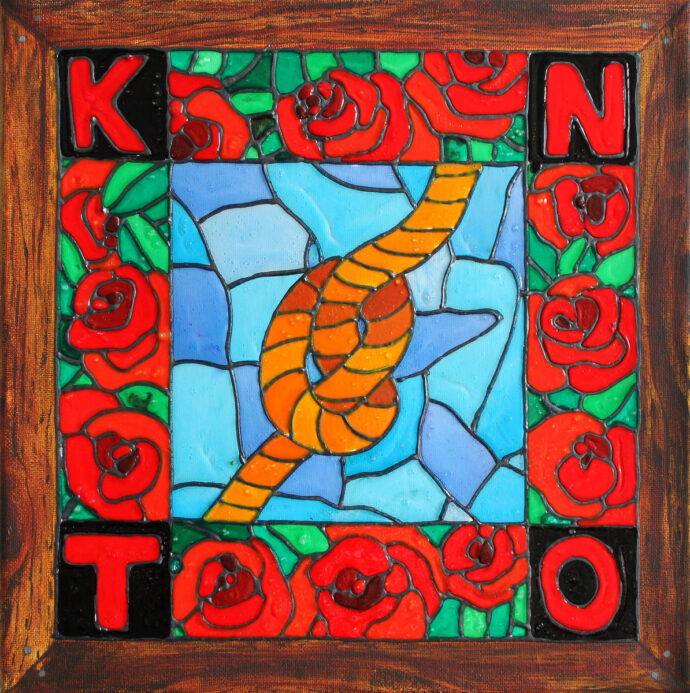Knot does a great job of making you think you’re about to listen to a run-of-the-mill indie album with clean guitars and singing that borders on talking, that is, until the first two songs give way to a series of angular juts, jabs, and drums in a range of odd meters that would give most mathematicians pause. While that sounds like a criticism, Knot’s self-titled debut album creates a balance between the delicate and the abrasive that pleases the ear as it disorients, a quality that lends itself to an album largely definable by its lack of even meter. What’s more, the band has a reputation to build on. Formed from the members of the Boston-based indie outfit Krill, Knot has upped the ante in their production and songwriting. So far, the transition has been a successful one.
The sounds achieved on these guitars with only the help of light distortion is impressive. What’s more impressive is the speed at which Knot races from loud and abrupt verses to quiter, expansive, even pretty choruses. Take a listen to one of Knot’s highlights, the ambitiously titled “The World”. Before breaking off into criss-crosses of dissonance in 9, the track starts off with a light, peaceful, lonesome guitar picking out the individual notes of a simple chord. The time signature of this intro section is anybody’s guess, and the guessing gets even harder when it returns for the chorus, with the addition of drums bass, and vocals. The internal conflict the song presents between these two moods, the rough and the pretty,
resonate with its lyrics, which go “I don’t want another world, I want this one”, a world in which, among many things, conflict and peace are constantly at odds.
The theme continues with one of the album’s singles, released earlier in the summer, titled “Horse Trotting, The Feet Not Touching the Ground”. With a track name like that, and judging by the few songs that lead up to it, it’s hard to know what to expect. And, chances are, you expected wrong. “Horse Trotting, The Feet Not Touching the Ground” advances in a languorous 7 + 11 time signature with guitars ornamenting the beat: light twiddles and slides lead into the downbeat, which always comes when you think it won’t. The chorus switches to 4/4 time and is the only portion of the record you could imagine on the soundtrack to Juno. Knot’s songwriting here departs from the patterns evidenced by their other repertoire. The single has three sections: the first grooving, the second gentle, and the third abrupt and menacing. This lack of repetition makes for new possibilities in what a song can be, even within the context of Knot, a task to which the indie group gladly takes.
Knot’s Knot shows how a band can diversify their sound without the use of a plethora of effects, but simply through inventive songwriting. We should look forward to what they come up with next.
Rating: 6.8/10

